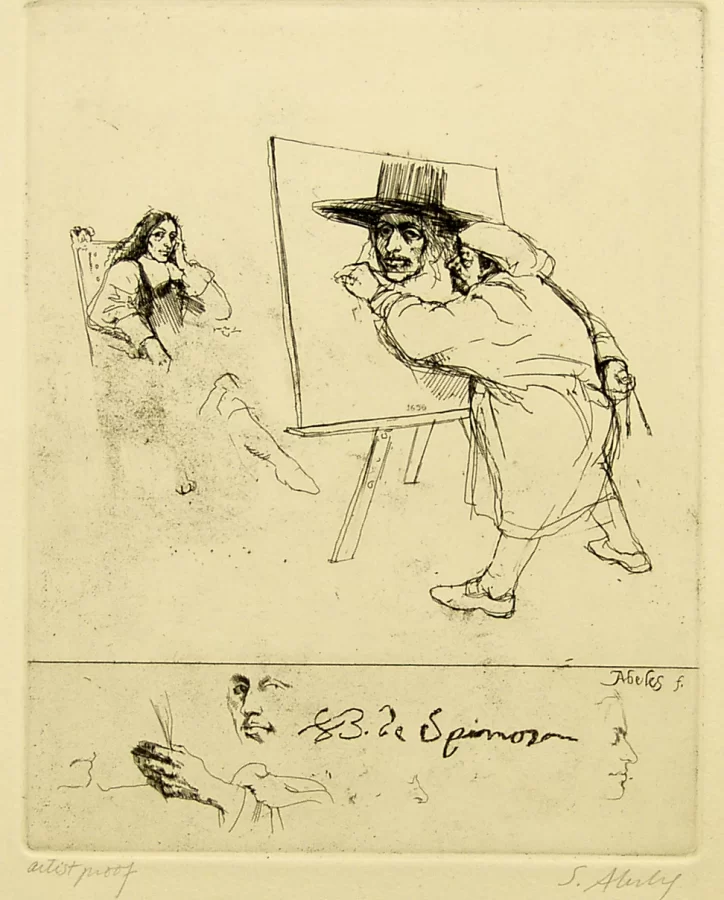Baruch Spinoza (Dutch, 1632-1677)
Considered one of the most important philosophers of the early modern period, Spinoza’s writings covered a vast variety of subjects, ranging from ethics to metaphysics to Biblical criticism. His two most important works, Ethics and Theologico-Political Treatise, remain highly influential in today’s study of philosophy. During his lifetime, he took extremely naturalistic views on God, the world, and humans and laid foundations for democratic political thought and critique of sectarian religion.
Spinoza’s career as a philosopher was not without controversy. For the time period, his radical views on divinity and the Hebrew Bible—such as denying humans had an immortal soul—led to him being labeled as a heretic and effectively exiled from the Amsterdam Jewish community into which he was born. Following his death, his works were banned throughout the States of Holland and were added to the Index of Forbidden Books created by the Catholic Church. Spinoza’s ideas and works sparked renewed interest in the nineteenth and twentieth centuries, and he has been repeatedly honored in modern Netherlands. Artist Sigmund Abeles inserts a little speculation and comedy into his image of Rembrandt and Spinoza, as apparently the two men were neighbors in Amsterdam, but there is no historical documentation that they ever met.


